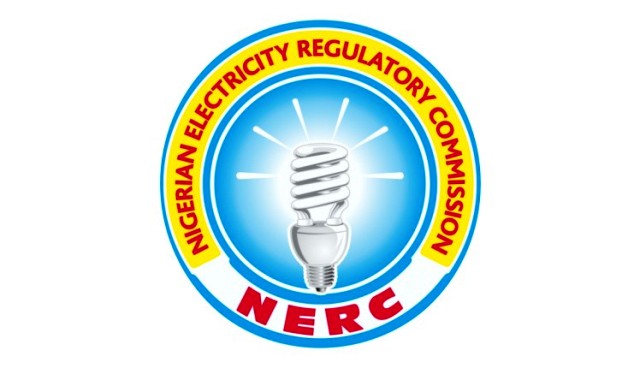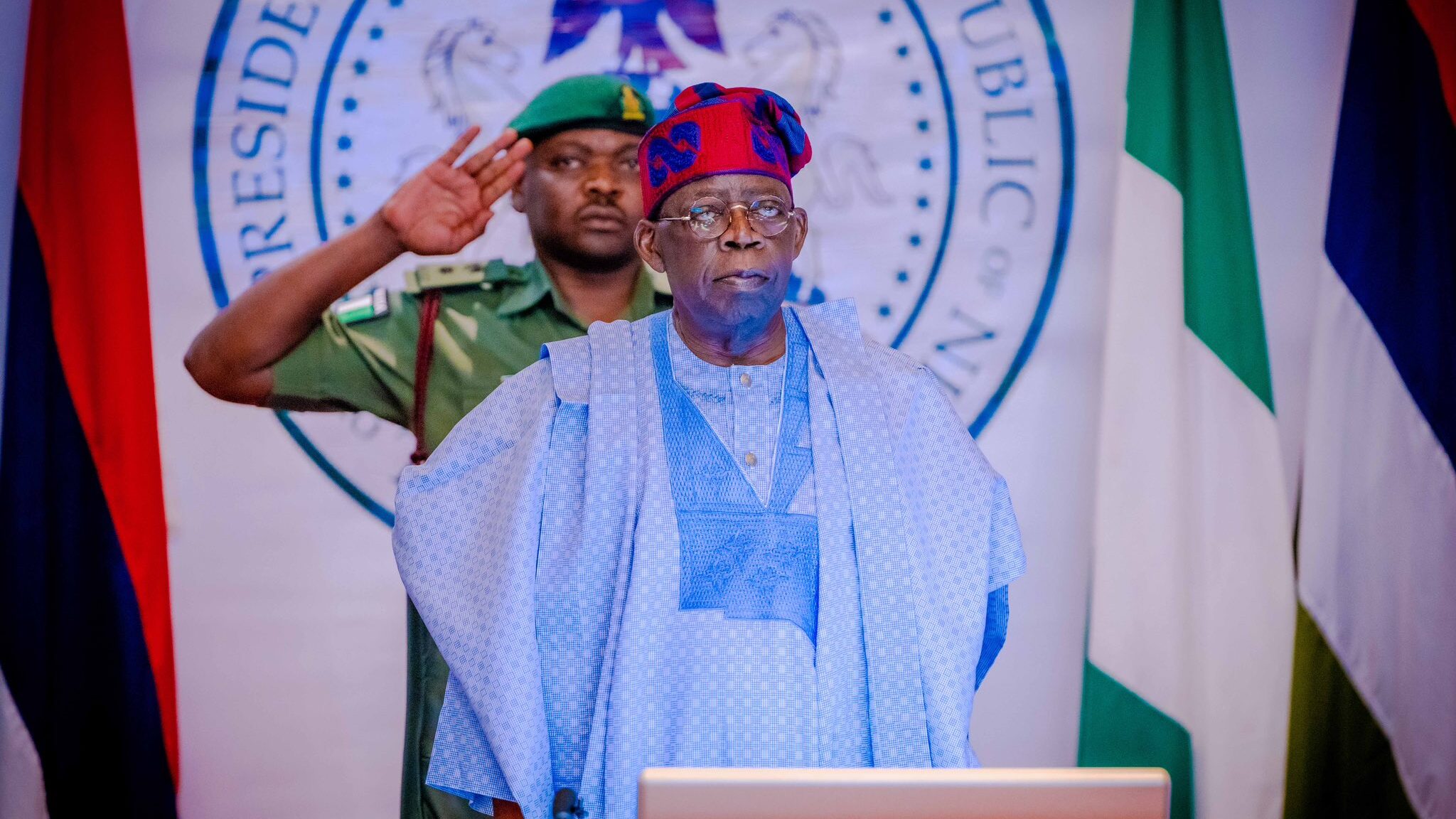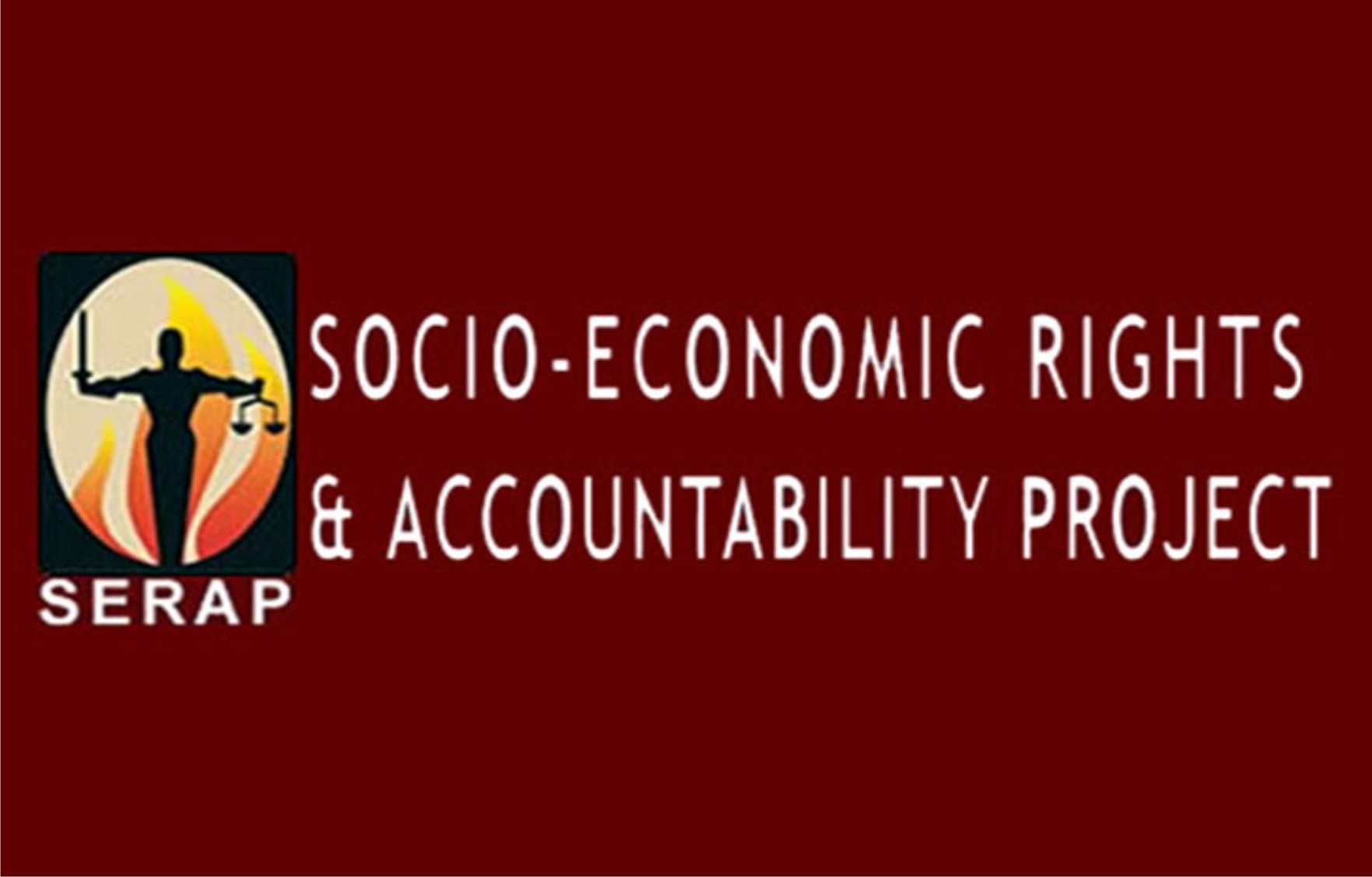News
NERC Denies Increase In Electricity Tariff As Consumers Kick

The Nigerian Electricity Regulatory Commission (NERC) says no tariff increase has been approved by the commission yet.
Mr Usman Arabi, General Manager, Public Affairs (NERC) made the clarification in a statement issued on the agency’s website, obtained bynewsmen in Lagos yesterday.
Arabi said:” The attention of the NERC has been drawn to the publication in several electronic and print media that end-user electricity tariffs have been increased following the approval of the minor review (2016 – 2018) of the 2015 Multi-Year Tariff Order on Aug. 21, 2019.
“We wish to provide guidance that the minor review implemented by the commission was a retrospective adjustment of the tariff regime released in 2015.
“This is to account for changes in macro-economic indices for the years 2016, 2017 and 2018 thus providing certainty about revenue shortfall that may have arisen due to the differential between tariffs approved by the regulator and actual end-user tariffs.
“The commission, therefore, wish to notify the general public that no tariff increase has been approved by the Commission vide the order.”
He said, however NERC, in the discharge of its statutory responsibilities enshrined under the Electric Power Sector Reform Act, would continue to undertake periodic reviews of electricity tariffs in accordance with the prevailing tariff methodology.
According to him, in all instances of such reviews and rule making, the commission will widely consult with stakeholders and final decision will take due regard of all contributions.
However, electricity consumer groups in the country have kicked against increasing tariff for end-user customers.
The groups, Energy Consumer Rights and Responsibilities Initiative and the All Electricity Consumer Protection Forum told newsmen in Lagos that increment in electricity tariff was unjustified based on present realities.
Mr Sural Fadairo, National President, Energy Consumer Rights and Responsibilities Initiative, noted that increasing the cost of electricity was not the panacea to Nigeria’s energy crisis.
“If they want to increase tariff because the Distribution Companies are under remitting due to debts by consumers, that will not solve the problem.
“If people are refusing to pay now because they are disputing their bills will they now pay if it is further increased? “What they need to do is to meter all electricity customers, so that we can end the issue of estimated billing.
“So, from the consumer point of view, we are totally against any increment because power generation and supply has not improved significantly in the country, “he said. Also, Mr Adeola Samuel-Ilori, National Coordinator, All Electricity Consumers Protection Forum, said the increase was totally uncalled for in all ramifications.
He said: “The basis for such increase at this time can’t be justified in that consumers have not been metered and they still purchase transformers and other line materials by themselves with attendant extortion via estimated billings. “ All these are not taken into consideration and extensively dealt with before contemplating tariff increase”.
Meanwhile, the Human Rights Writers Association of Nigeria, HURIWA, has carpeted the President Muhammadu Buhari-led Federal government over what it termed “astronomical rise” in the tariffs payable for electricity supply across the country.
HURIWA, a frontline rights advocacy claimed that the Buhari-led government was working “day and night” to unleash devastating economic strangulation through unsustainable reviewed electricity power tariffs on Nigerians most of whom are unemployed, hungry, sick and poor.
In a statement signed by its National Coordinator, Comrade Emmanuel Onwubiko and the National Media Affairs Director, Miss Zainab Yusuf, the rights group warned that the multiplier effect would be felt immediately due to spike in the costs of living.
The group said the focus of the Federal government in the beginning phase of the year should not be to impose grave hardship on the populace just coming out of the seasonal festivity of Christmas and New Year but any good government should be more focused on how quality education can be delivered to millions of the children of Nigerian suffering families that would be returning to schools in the next few days.
HURIWA said: “The Federal government should be focused in this New Year on how to improve health care and on how to curb the internal corruption that has destroyed the so called schools feeding programme instead of the Federal government of President Muhammadu Buhari working day and night to unleash devastating economic strangulation through unsustainable reviewed electricity power tariffs on millions of Nigerians most of whom are unemployed, hungry, sick and poor.
“President Muhammadu Buhari-led administration should be focused on restoring security of lives and property which is the primary duty of government and for which it has failed to discharge instead of rushing to introduce the wicked policy of Electricity power hike in January of a fresh DECADE.”
HURIWA recalled that the 11 electricity distribution companies (DisCos) have the mandate of the Nigerian Electricity Regulatory Commission (NERC) to effect the tariff increase from April just as these are as follows: Abuja Electricity Distribution Company, Benin Electricity Distribution Company, Enugu Electricity Distribution Company, Eko Electricity Distribution Company, Ibadan Electricity Distribution Company, Ikeja Electricity Distribution Company, Jos Electricity Distribution Company, Kaduna Electricity Distribution Company, Kano Electricity Distribution Company, Port Harcourt Electricity Distribution Company and Yola Electricity Distribution Company.
HURIWA specifically gathered that consequent upon the NERC directive, Abuja Electricity Distribution Company (AEDC) residential customers R3 will now pay N47.09 per unit as against the current N27.20, while Ikeja Electricity Distribution Company (IKEDC) customers in R3 category will pay N36.92 per unit instead of N26.50. Commercial customers C3 category will start paying N38.14 per unit instead of N24.63 and industrial customers of the IKEDC D3 category who are currently paying N25.82 per unit will henceforth pay N35.85 per unit.
HURIWA recalled that by the hike, the Enugu Electricity Distribution Company residential (R3) customers who currently pay N27.11 per unit will start paying N48.12 per unit just as the National Electricitu Regulatory Commission said the order was pursuant to Section 32 and 76 of the Electric Power Sector Reform Act aimed at providing a cost reflective tariffs that ensures prices charged by licensees are fair to consumers.
However, disagreeing with the explanation offered by the National Electricity Regulatory Commission for the current hike, HURIWA said that the “decision by the Electricity regulator to capitulate to the Machiavellian type selfish hike demand by the private operators of the weak, incompetent and inefficient electricity power supply subsector was against public interest and therefore will endanger public good and should be voided or resisted if government fails to listen to the voices of the people.”
HURIWA reminded the president that the voices of the people is the voice of God and if he wants to get the pulse and the heartbeats of the real people, then he the President should disguise himself as a commoner and drive to one of the rural markets in any part of the Federation so he can dissect properly the monumental dimension of mass poverty afflicting millions of Nigerians.
“HURIWA believes that the import of any public policy must be grounded on the utilitarian satisfaction of the greatest percentage of the population of the good people of Nigeria. Any public policy churned out specifically to enrich some privileged elitist class to the detriment of millions of the good people of Nigeria hasn’t met the constitutional threshold because of the centrality of the need for all government’s actions, policies and projects to be people centred and to benefit public good. The astronomical hike in the purchasing prices of the virtually non available and the erratic electricity power to less than 40% of the Nigerian population is directly offensive to the overall public good. In section 14 of the Nigerian Constitution the Federal Republic of Nigeria is legally created to be patterned as a State based on the Principles of democracy and Social Justice. Subsection 2(a) of section 14 provides that ‘Sovereignty belongs to the people of Nigeria from whom government through this constitution derives all its powers and authority. Just as subsection 2(b) of section 14 states that ‘the security and Welfare Of The People Shall Be The Primary Purpose Of Government.
“HURIWA believes that this is the most reckless policy to be imposed wickedly on the Nigerian people who are currently going through some of the most primitive and painful economic adversity in about 40 years. For a federal government to introduce such a callous tariff hike in the beginning of a new year either shows the government officials as Shylock Machiavellian and mean hearted selfish politicians who are insensitive and irresponsible to such an extent that the only policy they have brought UP to wish Nigerians a happy New year is to impose a strange but strangulating electricity tariffs without first and foremost ensuring that the distribution companies in the power electricity sector who got licences to distribute ELECTRICITY carry out their businesses in compliance with best global practices. The distribution companies lack transparency and acountability just as they are wayward in terms of corporate social responsibility to the people of Nigeria.
“These DISCOS are known to have been lavishly gifted with billions of Naira of Public fund by the Central Bank of Nigeria to improve their services but in the last five years it is evident that even the few Nigerian families who enjoy intermittent electricity power supplies are victims of price extortion through irregular billing methods without proper metering standards. Most electricity customers still don’t have meters to be able to accurately reconcile their consumption. Why is the Federal government through the National Electricity Regulatory Commission not concerned about decisively tackling the challenges associated with metering by the DISCOS rather than being so unnecessarily fixated with over exposing the marginalised electricity power consumers to untold hardships and further impoverishment in the hands of the profiteers masquerading about as licenced Distributors of Electricity power to NIGERIANS? Also why the hurry to increase the tariffs for services that are poor and inefficient? The Federal government must be compelled to reverse this anti people policy that will only increase mass poverty and will not in any away address the disturbing phenomenon of mass unemployment that became worst under the current Federal administration since the last 5 years?. Nigeria had only a year ago become the World’s capital of poverty with over 90 million people being absolutely poor. So how will they generate the money to pay these extremely hifh costs of electricity power supply which is so few and far between.”
News
China Alerts Rivers, A’Ibom, Abia Govs To Economic Triangle

The Mayor of Housing, My-ACE China, has alerted the Governor of Rivers, Akwa Ibom, and Abia states to what he calls an emerging ‘Economic Triangle’ within their states.
Mr China, a real estate success strategist who has won numerous local and international awards, has thus drawn the attention of the governors of the concerned states to the emerging development and has urged them to intentionally accelerate the emergence of the economic triangle.
Speaking to newsmen in Uyo, Akwa Ibom State capital at the conclusion of his business trip to the state, Mr China, who is the managing director of the Housing and Construction Mayor Limited, said the envisaged economic corridor would compete favourably with the Lagos economic hub or even better.
He said: “Talking about ‘Economic Triangle’, the only place that can wrest economic power from Lagos is Akwa Ibom, Abia, and Rivers states axis or corridor. This corridor contains more than Lagos has, if they can be interconnected with smooth roads, ports, and if their blue potentials are unlocked. They will not only wrest power from Lagos but would be more lucrative.”
The investor who is behind the emerging Alesa Highlands Green Smart City in Eleme, near Port Harcourt, said the new ‘Economic Triangle’ has a bigger potential due to massive land assets with the corridor plus blue economy and the existing hydrocarbon industry.
Explaining, Mayor of Housing said Aba (Abia State) provides the biggest fabrication capacity in West Africa to supply goods to the Gulf of Guinea; Port Harcourt provides access to the Gulf of Guinea for off-taking Aba products, and the Uyo provides deep sea port at Ibaka and international airport facilities as well as forest reserves for massive agro-economy.
He said with sea ports in Rivers State and deep seaport in Akwa Ibom, and international airports in Rivers and Akwa Ibom, Aba can focus on adequate power supply and fabrication boom to supply a new booming market around the economic triangle.
By doing this, he said, jobs would spill out in huge quantities and more manufacturers would be drawn from all over Africa to boost the fast coming African Continental Free Trade Agreement (AfCFTA). He said Nigeria would thus have two major trade nodes in West Africa; Lagos and the PH/UYO/Aba triangle.
He said goods going to or coming from Chad, Niger, and the rest of Central Africa can head to the Lagos ports or to the Ibaka/PH ports zone in the new economic triangle.
He said with power supply made stable, good roads, excellent security system, and ease of doing business enthroned in the zone, the South-South and South East would become the biggest economic nerve in the near future.
Mayor of Housing called on governors of the three states to be intentional about the new corridor, put away political differences (if any), and create this corridor by agreeing on projects each state would execute with a short period of time so the states would be linked by good roads, communication, security, trade laws, concessions to investors, etc.
He remarked that northerners were already heading to the Onne Port in Rivers State to export goods, saying creating a commission to oversee the development of the ‘Economic Triangle’ would fast-track its emergence.
He observed that people of the three states are peaceful and usually preoccupied with zeal for economic prosperity, saying that if they are linked to such huge opportunities staring at them in the emerging economic triangle, they would totally shun violence and focus on prosperity.
Mr China insisted that the emerging economic triangle would form a big node not only into the Gulf of Guinea economic zone but into Africa because AfCFTA is about production, certification, market availability, and easy transport nodes by sea and air. He said the new economic triangle boasts of all the factors.
“They can only realise this by working together, through collaboration. One state cannot do it but a triangle of the three will create it through seamless interconnection, ports, industrial park, etc. The people will be the richest and internally generated revenue (IGR) will be the biggest in the country,” he said.
News
Tinubu Nominates Ex-INEC Chair Yakubu, Fani-Kayode, Omokri, 29 Others As Ambassadors

President Bola Tinubu has sent the names of 32 ambassadorial nominees to the Senate for confirmation, days after he sent the first batch of three names.
Among them are the immediate past chairman of the Independent National Electoral Commission, Mahmud Yakubu, an aide to former President Goodluck Jonathan, Reno Omokri (Delta), and former Enugu State Governor, Ifeanyi Ugwuanyi, among others.
“In two separate letters to the Senate President, Godswill Akpabio, President Tinubu asked the Senate to consider and confirm expeditiously 15 nominees as career ambassadors and 17 nominees as non-career ambassadors,” read a statement on Saturday by the Special Adviser to the President on Information and Strategy, Bayo Onanuga.
In the statement titled, ‘Tinubu nominates 32 additional ambassadors,’ Onanuga noted, “There are four women on the career ambassadors’ list and six women on the non-career ambassadors’ list.”
“Among the non-career ambassador designates are Ogbonnaya Kalu from Abia, a former presidential aide, Reno Omokri (Delta), former chairman of the Independent National Electoral Commission (INEC), Mahmud Yakubu, former Ekiti first lady, Erelu Adebayo, and former Enugu governor, Ifeanyi Ugwuanyi.
“Others are Tasiu Musa Maigari, the former speaker of the Katsina House of Assembly, Yakubu N. Gambo, a former Commissioner in Plateau State and former Deputy Executive Secretary of the Universal Basic Education Commission.
“Professor Nora Ladi Daduut, a former senator from Plateau; Otunba Femi Pedro, a former Deputy Governor of Lagos State; Femi Fani-Kayode, a former aviation minister from Osun State; and Nkechi Ufochukwu from Anambra State are on the nomination list,” the statement read.
Also on the list are former First Lady of Oyo, Fatima Florence Ajimobi, former Lagos Commissioner, Lola Akande, former Adamawa Senator, Grace Bent, former governor of Abia, Victor Okezie Ikpeazu, Senator Jimoh Ibrahim, businessman, lawyer and Senator from Ondo State, and the former ambassador of Nigeria to the Holy See, Ambassador Paul Oga Adikwu from Benue State.
Among the nominees for career ambassador and high commissioner-designates are: Enebechi Monica Okwuchukwu (Abia), Yakubu Nyaku Danladi (Taraba), Miamuna Ibrahim Besto (Adamawa), Musa Musa Abubakar (Kebbi), Syndoph Paebi Endoni (Bayelsa), Chima Geoffrey Lioma David (Ebonyi) and Mopelola Adeola-Ibrahim (Ogun).
The other nominees are Abimbola Samuel Reuben (Ondo), Yvonne Ehinosen Odumah(Edo), Hamza Mohammed Salau (Niger), Ambassador Shehu Barde (Katsina), Ambassador Ahmed Mohammed Monguno (Borno), Ambassador Muhammad Saidu Dahiru (Kaduna), Ambassador Olatunji Ahmed Sulu Gambari (Kwara) and Ambassador Wahab Adekola Akande (Osun).
“The new nominees are expected to be posted to countries with which Nigeria maintains excellent and strategic bilateral relations, such as China, India, South Korea, Canada, Mexico, the United Arab Emirates, Qatar, South Africa, Kenya, and to Permanent Missions such as the United Nations, UNESCO, and the African Union.
“All the nominees will know their diplomatic assignments after their confirmation by the Senate,” it read.
Last week, Tinubu sent three ambassadorial nominees for screening and confirmation.
The nominees were Ambassador Ayodele Oke (Oyo), Ambassador Amin Mohammed Dalhatu (Jigawa), and Retired Colonel Lateef Kayode Are (Ogun).
All three are in the pot for posting to the UK, USA, or France after their confirmation.
“More nominees for ambassadorial positions will be announced soon,” Onanuga revealed.
News
Investment In Education Remains Top Priority For Gov Fubara – SSG

The Secretary to Rivers State Government, Dr. Benibo Anabraba, has reiterated that the administration of Governor Siminalayi Fubara remains committed to improving access to quality education at all levels.
Dr. Anabraba gave the assurance while receiving the Deputy Registrar/Zonal Coordinator of the West African Examinations Council (WAEC), Mr Ayanfemi Adeniran-Amusan in Port Harcourt during a courtesy visit.
He emphasised that Governor Fubara remains resolute in sustaining investment in the education sector to improve the quality of teaching and learning.
According to him, “We appreciate the work you are doing and know that our students are amongst the highest in ranking.
“His Excellency, Sir Siminalayi Fubara, takes education very seriously. He is sponsoring the free registration of students for the West African Senior School Certificate Examination (WASSCE) in Government Schools.
“Also, Governor Fubara has approved the establishment of Computer-Based Test (CBT) Centres across the State’s three senatorial districts and the 23 LGAs. The project is intended to improve access to digital learning and examination facilities for students so that our children are at breast with digital literacy, a prerequisite for today’s students.
“We are currently working assiduously to get those centres, both mega and mini, across the three senatorial districts and the 23 local government ready in order to meet up with your deadline,” he said.
The SSG also conveyed the assurances of the Governor to WAEC on Government’s willingness in providing land for its Zonal Office.
Earlier, the Deputy Registrar/Zonal Coordinator of the West African Examination Council, Mr Ayanfemi Adeniran-Amusan, promised to collaborate with the State Government in matters concerning education development.
In another development, the Secretary to State Government, Dr Benibo Anabraba, also met with officials of the National Agency for the Prohibition of Trafficking in Persons, NAPTIP, led by the Assistant Director of Intelligence, Rivers State Command, Barr. Ikediashi Nwamaka.
The SSG while appreciating the Agency for its effort in the protection of vulnerable persons, also raised Government’s concern on the activities of orphanages and care homes in unwholesome practices such as child trafficking, abuse of underaged girls also known as baby-factory, and the lack of regulations on surrogacy.
He however assured that the Rivers State Government has already put plans in place towards legislation to regulate these acts against vulnerable persons, particularly women and children.
-

 Featured2 days ago
Featured2 days agoOil & Gas: Rivers Remains The Best Investment Destination – Fubara
-

 Nation2 days ago
Nation2 days agoOgoni Power Project: HYPREP Moves To Boost Capacity Of Personnel
-
Nation2 days ago
Hausa Community Lauds Council Boss Over Free Medical Outreach
-
Nation2 days ago
Association Hails Rivers LG Chairmen, Urges Expansion Of Dev Projects
-
Nation2 days ago
Film Festival: Don, Others Urge Govt To Partner RIFF
-
Nation2 days ago
MOSIEND Calls For RSG, NDDC, Stakeholders’ Intervention In Obolo Nation
-

 News2 days ago
News2 days agoNDLEA Arrests Two, Intercepts Illicit Drugs Packaged As Christmas Cookies
-
Rivers2 days ago
UNIPORT Moves To Tackle Insecurity … Inducts Security Experts






